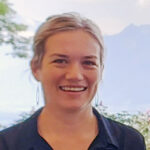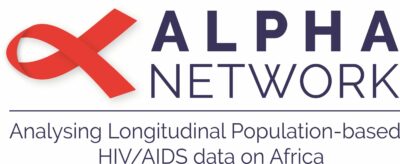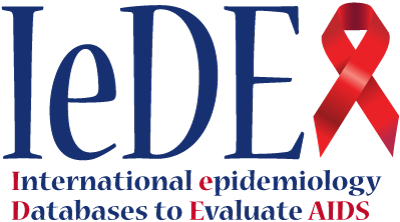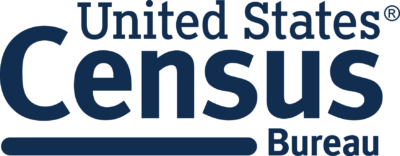Who We Are
Mathematical methods developed with the guidance of the Reference Group on Estimates, Modelling and Projections are used by United Nations Joint Programme on HIV/AIDS (UNAIDS) to generate HIV estimates (available at AIDSinfo) for nearly every country in the world. These estimates have been critical for describing the nature and scale of HIV epidemics around the world. Having these tools available provides countries with the essential information required to design effective and strategic programmes and efficiently plan for resource allocation. The Reference Group acts as an ‘open cohort’ of epidemiologists, demographers, statisticians, and public health experts. It is able to provide timely advice and also address ongoing concerns through both ad hoc and regular meetings. The group is co-ordinated by a Secretariat, managed at SACEMA.
Lists of past members of Reference Group Meetings can be found in the meeting reports of all our meetings.
Our Mission
Please see [Our Work] page for further information on the history of the Reference Group and our objectives.
Secretariat Members
The Secretariat is managed at the DSI-NRF Centre for Epidemiological Modelling and Analysis (SACEMA), Stellenbosch University, South Africa. It is comprised of the following members:

Cari van Schalkwyk
Lead
Dr Cari van Schalkwyk is a senior researcher at the South African Centre for Epidemiological Modelling and Analysis (SACEMA), at the University of Stellenbosch. In recent years her research has focused on the epidemiology of HIV, human papillomavirus (HPV), the synergies between these two viruses, the progression of HPV to cervical cancer and the impact of prevention of these diseases in South Africa. She has also done work on other infections of national priority in South Africa, such as COVID and TB. She holds a PhD in Epidemiology from the University of Cape Town, and a Master’s degree in Mathematical Statistics from the University of Stellenbosch. She is a faculty member of the International Clinics on Infectious Disease Dynamics and Data Program (ICI3D).

Yuri Munsamy
Member
Dr Yuri Munsamy is a Science Officer at the South African Centre for Epidemiological Modelling and Analysis (SACEMA). In her current role, she leads grant writing efforts to secure funding for infectious disease and epidemiological modelling projects. She holds a PhD in Virology, researching HPV in head and neck cancers but her keen interest in translating complex science into tangible concepts led her to hang up her lab coat. She is passionate about turning data points into meaningful insights to drive real-world impact and improve the lives of people.

Jeffrey Eaton
Co-Chair
Dr Jeff Eaton is a senior lecturer in HIV epidemiology within the Department of Infectious Disease Epidemiology at Imperial College. His research involves using mathematical models and statistical analysis to understand HIV epidemics in southern Africa and the potential impacts of HIV prevention strategies. His main research interests include understanding the epidemiological impacts of antiretroviral therapy on HIV epidemics in sub-Saharan Africa, improving methods and surveillance data for estimates of HIV trends, developing and validating mathematical models used to inform HIV policy decisions in generalized epidemic settings, HIV in children and adolescents in southern Africa, and data collection, analysis, and modelling of general-population HIV cohort studies. He holds a PhD in Infectious Disease Epidemiology from Imperial College London, and Master’s degree in Statistics from the University of Washington. He has worked at demographic surveillance sites: the Agincourt Health and Population Unit in rural north-eastern South Africa and the Mekong Integrated Population Registration Areas of Cambodia (MIPRAoC). He collaborates extensively with the Manicaland HIV/STD Projection, a population-based HIV cohort in eastern Zimbabwe, and contributes to the UNAIDS Reference Group on Estimates, Modelling, and Projections and the Economics and Modelling working group of the HPTN 071 (PopART) community randomised trial of a combined HIV prevention package including test-and-treat.

Leigh Johnson
Co-Chair
Dr Leigh Johnson is an associate professor at the Centre for Infectious Disease Epidemiology and Research, at the University of Cape Town, South Africa. His research interests are in HIV epidemiology and HIV modelling. He is also involved in a number of other disease modelling projects focusing on other sexually transmitted infections, cervical cancer, diabetes and tuberculosis. His modelling work has focused particularly on the South African context, and he is the lead developer of the Thembisa model, which is a widely used source of HIV and demographic statistics in South Africa. He serves on the editorial boards of ‘AIDS’ and ‘Infectious Disease Modelling’. He is also a member of the International epidemiology Databases to Evaluate AIDS (IeDEA) network.
Partnering Organisations

United Nations Joint Partnership on HIV/AIDS (UNAIDS)
Geneva, Switzerland

London, UK

Cape Town, South Africa

London School of Hygiene and Tropical Medicine, London, UK

Glastonbury, CT, USA (SPECTRUM)
Honolulu, Hawaii, USA (Estimation and Projection Package, EPP)

International epidemiology Databases to Evaluate AIDS

Measurement and Surveillance of HIV Epidemics (MeSH) Consortium
London School of Hygiene and Tropical Medicine, London, UK

New York, NY, USA

Washington, DC, USA

U.S. Centers for Disease Control & Prevention (CDC)
Atlanta, GA, USA

World Health Organization (WHO)
Geneva, Switzerland
Our Funding
The Reference Group work closely with UNAIDS, who fund the Reference Group Secretariat through a grant to Imperial College London. For further information on UNAIDS, please visit www.unaids.org
